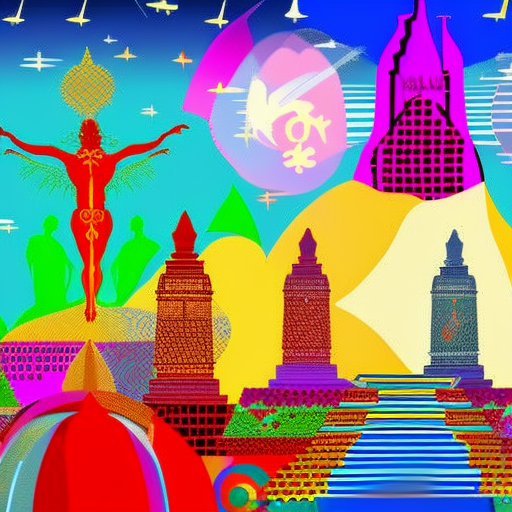One-line Summary:
In “Small Gods,” Terry Pratchett explores the power of belief, religion, and the nature of gods through the hilarious and thought-provoking journey of a novice named Brutha and his encounter with the Great God Om.
The Power of Belief:
In “Small Gods,” Terry Pratchett delves into the fascinating concept of belief and its influence on individuals and society. The story takes place in the land of Omnia, where the people worship the Great God Om. However, the Great God Om is not as great as he used to be. Reduced to the form of a small tortoise, Om struggles to maintain his influence and power in a world where belief has waned.
The novel introduces us to Brutha, a simple-minded novice in the Church of Om who possesses an extraordinary memory. Brutha’s unwavering belief in Om is tested when he encounters the Great God in his tortoise form. Through their interactions, Pratchett explores the power dynamics between gods and their followers, questioning the authenticity of religious institutions and the role of belief in shaping society.
The Nature of Gods:
Pratchett skillfully examines the nature of gods and their relationship with their followers. As Brutha embarks on a journey with Om, he discovers that gods are not infallible beings but rather reflections of the belief and faith placed in them. Om, once a powerful god, has become weak due to the lack of belief from his followers. This realization forces Brutha to question the validity of his faith and the actions of the Church of Om.
Throughout the novel, Pratchett challenges the idea of gods as all-knowing and all-powerful beings. Instead, he presents them as flawed and dependent on the belief of their followers. This exploration prompts readers to contemplate the nature of faith, the existence of gods, and the role of organized religion in society.
A Satirical Take on Religion:
“Small Gods” is a satirical masterpiece that humorously critiques organized religion and its impact on society. Pratchett uses wit and clever storytelling to highlight the absurdities and hypocrisies of religious institutions. Through the Church of Om, he satirizes the power-hungry clergy, the blind adherence to dogma, and the manipulation of faith for personal gain.
Pratchett’s satirical approach encourages readers to question the motives and actions of religious leaders, urging them to think critically about their own beliefs and the influence of organized religion on their lives. By infusing humor into the narrative, Pratchett effectively delivers his social commentary without alienating readers or belittling their personal convictions.
Key Takeaways:
- Belief has the power to shape individuals and society.
- Gods are dependent on the belief of their followers.
- Organized religion can be susceptible to corruption and manipulation.
- Questioning one’s faith and religious institutions is essential for personal growth.
“It’s not enough to be able to pick up a sword. You have to know which end to poke into the enemy.” – Terry Pratchett, Small Gods
In “Small Gods,” Terry Pratchett presents a thought-provoking exploration of belief, the nature of gods, and the satirical critique of organized religion. Through the journey of Brutha and his encounter with the Great God Om, Pratchett challenges readers to question their own faith, the power dynamics within religious institutions, and the influence of belief on individuals and society. With its humorous and insightful narrative, “Small Gods” invites readers to reflect on the complexities of religion and the importance of critical thinking in matters of faith.












